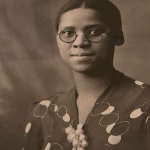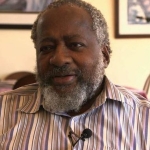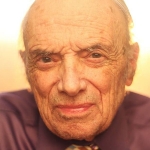Background
Archibald Campbell Mzolisa Jordan was born on October 30, 1906, at the Mbokothwana Mission in the Tsolo district of Pondoland in the Cape Colony, South Africa. He was a son of an Anglican minister.

Archibald Jordan, educator, novelist, writer, scholar, author, poet.
Archibald Jordan was honored by the state with the Order of Ikhamanga in Gold in September 2005.
1 Amatola Row, King William's Town, 5601, South Africa
Archibald Jordan received a Junior Certificate and a Teacher's Diploma from Lovedale College.
50 Callaway St, Umtata Central, Mthatha, 5100, South Africa
Archibald Jordan studied at St. John's College.
University of Fort Hare Alice Campus, Ring Road, Alice, 5700, South Africa
Archibald Jordan received a Bachelor of Arts from Fort Hare University.
Preller St, Muckleneuk, Pretoria, 0002, South Africa
Archibald Jordan received a Master of Arts from the University of South Africa.
Rondebosch, Cape Town, 7700, South Africa
Archibald Jordan received a Doctor of Philosophy from the University of Cape Town.











educator novelist translator writer author scholars poet
Archibald Campbell Mzolisa Jordan was born on October 30, 1906, at the Mbokothwana Mission in the Tsolo district of Pondoland in the Cape Colony, South Africa. He was a son of an Anglican minister.
Archibald Jordan went to St. Cuthbert's Primary School under Mbokothwana Mission in the Eastern Cape. After finishing his primary school education, he was awarded the Andrew Smith bursary as an outstanding student. He went to Alice to further his education at Lovedale College (now Lovedale Public TVET College) where he got a Junior Certificate, also known as Standard Eight (now Grade Ten). In 1923, he moved to Umtata to study at St. John's College. After being awarded a scholarship, he began his academic studies at Fort Hare University College. Then later went back to Lovedale College to enroll for a teacher's diploma, obtained in 1932.
Jordan received a Bachelor of Arts majoring in literature and linguistics, from Fort Hare University in 1934. In 1944, he received a Master of Arts from the University of South Africa after completing a thesis on the phonetic and grammatical structure of the Baca language, one of the subdivisions of the Nguni family of languages, entitled "Some features of the phonetic and grammatical structure of the Bhaca focusing on the Tekela Nguni language." In 1957, Archibald Jordan followed up at the University of Cape Town with his doctoral dissertation, "A Phonological and Grammatical Study of Literary Xhosa." He was the first African-American man to achieve a Doctor of Philosophy in phonological and grammatical study from the University of Cape Town.
Archibald Jordan launched his academic career as a teacher at Bantu High School in Kroonstad, Orange Free State, South Africa, where he worked in 1936-1944. In Kroonstad, he also became involved in teachers' political activities. He also began to engage in creative writing for the Imvo Zabantsundu newspaper. In 1945, he accepted a teaching position in the Department of African Languages at the University of Fort Hare, following the retirement of Davidson Don Tengo Jabavu. It was a short-lived association.
In 1946, Jordan came to the University of Cape Town (UCT) as a senior lecturer, a career that lasted until 1962. According to his wife, Phyllis, Jordan was criticized for leaving Fort Hare for UCT. His response was: "I am going to UCT to open that [UCT] door and keep it ajar so that our people too can come in. UCT on African soil belongs to us too. UCT can and never will be a true university until it admits us too, the children of the soil. I am going there to open that door and keep it ajar." At UCT, Jordan was a lecturer in Lestrade's Language section of the School of African Studies. He had by then published his classic, Ingqumbo yeminyanya (The Wrath of the Ancestors, which Jordan himself translated into English). There he evolved a new method of teaching Xhosa to speakers of other languages and became an inspirational teacher of Xhosa culture and language, as his students were later to testify. He codified this method and published it in 1966 as A Practical Course in Xhosa. But his tenure was brief. Like many others, Jordan became involved in opposition to the government's racial policies, and when he took up a Carnegie bursary for research work in the United States, he was refused a passport.
In 1962, he was a professor in African Languages and Literature at the University of California Los Angeles. The following year, he joined the Institute for Research in the Humanities at the University of Wisconsin, at Madison. He was appointed a full professor in the newly formed Department of African Languages and Literature in 1964, holding this position until his death in 1968.
Archibald Jordan's literary works deftly integrated African traditional beliefs with the experience of cultural dispossession to create an explosive and penetrating literary style. He wrote a series of articles entitled Towards an African Literature, which originally appeared in the periodical Africa South and were later published in book form. They discuss such topics as traditional praise poems, riddles and proverbs, the history of Xhosa literature, and various important individual Bantu writers. In developing his theme of the conflict between traditional and Western ways, Jordan denies any easy solution.
His most notable work, Ingqumbo Yeminyanya, portrays a young "modernized" Mpondomise ruler and his wife who disregard tradition with tragic results. As pointed out by Daniel P. Kunene in his essay in African Literature Studies: The Present State, Jordan's novel Ingqurnbo Yeminyanya follows the tradition of African oral narratives that feature "child heroes" who must flee their village or homeland, grow up in another culture or setting, and then return home. In this case, the hero Zwelinzima is rescued from being killed by his uncle Dingindawo, who wants to usurp Zwelinzima as the future king. Zwelinzima goes away, grows up in another culture, and eventually returns to be installed as king. Nevertheless, the novel is tragic and reflects the difficulties faced by oppressed people. Having received a Western education before he returns to his village, Zwelinzima tries to develop a new life for his people. Although he only wishes the best for his people, Zwelinzima is doomed to failure. Many of his friends who read his manuscript tried to persuade Jordan to change the ending so that modernity and Christianity would win in the end over traditional religion and beliefs. Jordan refused to change the end and its implication. The novel was written in Xhosa, a language spoken by approximately 6.5 million people in southeastern South Africa. In 1980, more than a decade after Jordan's death, Ingqumbo Yeminyanya was published in English as The Wrath of the Ancestors. Translated by the author with the help of his wife, the book is the result of several attempts at a translation by the author and ultimately ended up with new characters and several alterations to the story.
Jordan published an informative series of articles in English in Africa South between 1957 and 1960. The series was titled "Towards an African Literature" and was published posthumously in book form by the University of California Press in 1973, as were his translated, Tales from South Africa. Jordan also wrote poems and short stories in Xhosa which, except for his Kwezo Mpindo Zetsitsa, have been published in English translations. His militant stance on the rights of native Africans is often reflected in his poetry, including the poem Uthi mandiyeke (You Tell Me to Sit Quiet). Among his noteworthy works in Xhosa are Ulubhelu-Ndongana, Imhobe, and Ooketshe babha zalele, which contain poignant poems depicting the conditions of the oppressed African people of South Africa. Before his death, Jordan had completed two more novels and a collection of short stories; the stories were published in 1975 under the title Kwezo mpindo ze Tsitsa (Along the Bends of the Tsitsa). His collection of verse, Imihobe, was never published, and he wrote two more novels in Xhosa that were never published.
Archibald Jordan became the first African to receive a doctor's degree in the phonological and grammatical study at the University of Cape Town. He was a pioneer in the field of African Studies under Apartheid. Jordan epitomized the anguish of a generation of African academics who tried in vain to reconcile Christian preachment and the brutal treatment of blacks in South Africa and who saw at first hand what cultural emasculation did to an oppressed people. He fought back in his writings and described the bitter resentment of the African peasants to the conditions under which they lived. In 1961, he was awarded the Carnegie Travel Grant to tour universities and colleges in the United States of America. In 2004, 36 years after his death, the University of Port Elizabeth conferred a doctorate in the literature on Archibald Jordan. He was honored by the state with the Order of Ikhamanga in Gold in September 2005. The former Arts Block of the University of Cape Town on University Avenue was formally renamed the AC Jordan Building in 2018.
Both Archibald Jordan and his wife were highly active in campaigns against the Group Areas Act of 1950, the Bantu Authorities Act of 1951, the Jan van Riebeeck celebrations at the Grand Parade in Cape Town in 1952, and the Bantu Education Act of 1953. They were active members of the Non-European Unity Movement (NEUM). Like many other teachers and lecturers of the University of Cape Town involved in opposition to the Apartheid state, Jordan and his wife were targeted by the apartheid Security Police. During the state of emergency instituted by the government after the Sharpeville massacre and Langa protest of March 1960, Jordan was arrested and assaulted. The family had reached the end of the road in terms of legal space for opposition and for unbridled academic activity and decided to go abroad. As a high-profile opponent to the Apartheid regime, he was refused a passport. He decided to leave South Africa on an exit permit with his son Zweledinga Pallo Jordan, using the "liberationist route," via Botswana and Tanzania to London.
In 1937-1942, Archibald Jordan was a vice-president of the Orange Free State African Teachers' Association. In 1943-1944, he served as president of the Association. He was a founding member of the Society of Young Africa and a member of the Cape African Teachers Association.
Quotes from others about the person
Harold Scheub, a scholar and Archibald Jordan's student, said: "He loved his students, and his students reciprocated with an affection that was profound and respectful. In the classroom and outside, Professor Jordan was able to create and exploit a remarkable rapport with his students, a relationship that was compounded of his brilliance, his warmth, and his accurate insights. Wit, charm, scholarship, a splendid combination of gentleness and selfless interest, a richly romantic man of vision, a deeply contemplative man who belonged to no routine, who seemed limited by no physical time. He was that rare teacher who knew how to listen, not because he had perfected the art of listening, but rather because he was genuinely interested in, excited by, the ideas of others."
In an article on Archibald Jordan, an academic Phil Ndlela said: "Jordan ranks as one of those value-oriented intellectuals who were maligned by the establishment for daring to speak the truth. He consciously deployed his scholarship to advance the cause of the underdog, the voiceless and the marginalized."
In January 1940, Archibald Jordan married Priscilla Phyllis Ntantala, a writer, feminist, and activist. They had four children. The Jordan family first took up residence in Moshesh Avenue in the Langa township but they later wrote to Governor-General Brownlee, to ask for permission to purchase land from a Mr. Guttman in Fleur Street, Lincoln Estate, Cape Town. The permission was granted and they established their home, "Thabisano" (a place of rejoicing), in Lincoln Street in Athlone. Their children were sent to St. Marks Church School in Athlone, Rosmead School, and Livingstone High School in Claremont.

Priscilla Phyllis Jordan, maiden name Ntantala, was a writer, feminist and political activist. She battled apartheid, capitalism, and the oppression of women. Phyllis Jordan has written extensively on South African affairs since the 1950s. Archibald Jordan had first met her at Fort Hare University.

Zweledinga Pallo Jordan worked in London for the African National Congress (ANC) on a full-time basis at its London office in 1975 as a researcher in the ANC Department of Information and Publicity. In 1979, on the recommendation of Oliver Tambo, he was appointed director of the ANC's first internal mass propaganda campaign, The Year of the Spear, marking the centenary of the Battle of Isandhlwana of 1879. In 1980, Jordan was promoted to head the Research Unit of the ANC Department of Information and Publicity. He was a director of Radio Freedom in 1977-1979, based in Luanda, and with the arrival of post-Soweto recruits in the ANC's Angolan camps, he cadres. In 1979-1988, he headed the ANC's research division in the Department of Information and Publicity DIP, working at the outset in Maputo in cooperation with Ruth First.
After South Africa's first democratic elections in April 1994, Jordan was sworn in as a Member of Parliament and Minister of Posts, Telecommunications and Broadcasting of the Government of National Unity on 9 May. He was re-appointed to a cabinet post in May 1996, as the Minister of Environmental Affairs and Tourism until he was dropped in 1999 having served his full term as a minister. In 1999-2004, he served as Chairperson of the Foreign Affairs Committee in the National Assembly. After the 2004 National Elections, Jordan was appointed Minister of Arts and Culture by President Thabo Mbeki, a post he held from April 2004 to May 2009.

Harold Scheub was a United States Africanist and Evjue-Bascom Professor of Humanities Emeritus in the Department of African Languages and Literature (now the Department of African Cultural Studies) at the University of Wisconsin-Madison. He joined the University's faculty in 1970 and served three times as chair of the Department of African Languages and Literature. He won numerous teaching, research, and service awards and digitized about 2,300 hours of taped oral narratives, poems, histories, and epics collected during his research trips among the Xhosa, Zulu, Ndebele, Swati, and Sotho peoples in South Africa, Swaziland Lesotho, and Zimbabwe. He established the Harold Scheub Great People Scholarship in 2011 to support the University of Wisconsin-Madison students with financial needs.
